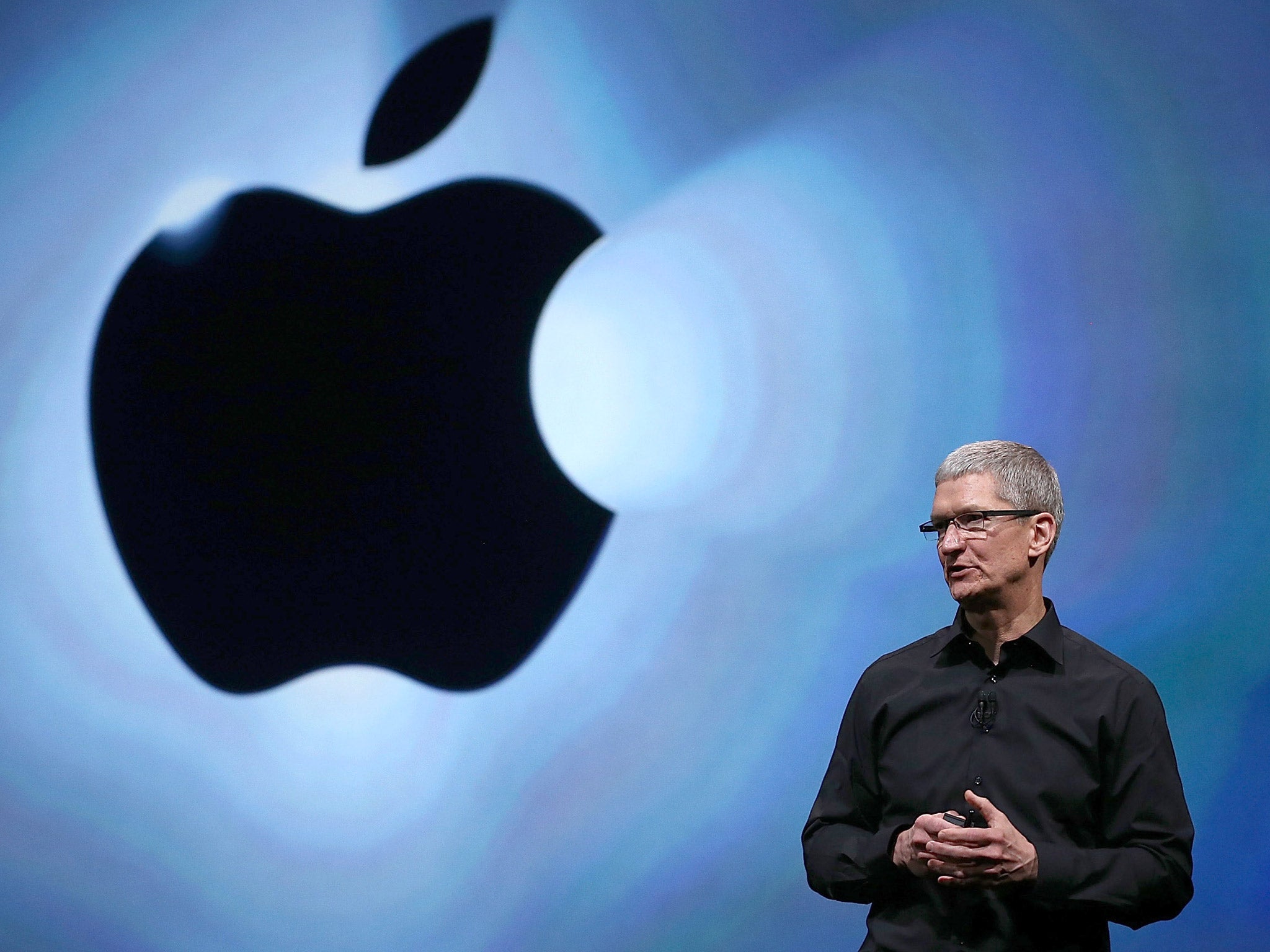Apple CEO Tim Cook tells Senate: Tiny tax bill isn’t our fault – it’s yours
Tech giant ‘avoided’ paying more than $1m every hour due to use of international loopholes

Your support helps us to tell the story
From reproductive rights to climate change to Big Tech, The Independent is on the ground when the story is developing. Whether it's investigating the financials of Elon Musk's pro-Trump PAC or producing our latest documentary, 'The A Word', which shines a light on the American women fighting for reproductive rights, we know how important it is to parse out the facts from the messaging.
At such a critical moment in US history, we need reporters on the ground. Your donation allows us to keep sending journalists to speak to both sides of the story.
The Independent is trusted by Americans across the entire political spectrum. And unlike many other quality news outlets, we choose not to lock Americans out of our reporting and analysis with paywalls. We believe quality journalism should be available to everyone, paid for by those who can afford it.
Your support makes all the difference.Apple “avoided” more than $1m (£650,000) in US taxes every hour last year, a senior Washington lawmaker said as the tech giant found itself the centre of the debate over loopholes in international tax laws.
Known worldwide for its innovative gadgets, the business was criticised for employing a fiendish corporate structure that, according to Carl Levin, the Democratic head of the US Senate’s Permanent Sub-Committee on Investigations, included three “ghost companies” that “exist nowhere” for tax purposes – “not in Ireland, where they are incorporated, and not in the United States, where the Apple executives who run them are located.” Apple was also accused of using other methods to cut its tax bill, and criticised for keeping billions of dollars worth of profits outside the US.
Tim Cook, who succeeded the late Steve Jobs as Apple’s CEO in 2011 and who is more accustomed to being celebrated for the success of the products, was forced to defend the business at a hearing before Senator Levin’s Sub-Committee, saying: “We pay all the taxes we owe – every single dollar. We not only comply with the laws, but we comply with the spirit of the laws.”
The Apple boss recommended, however, that Washington reform the tax code, arguing that the county’s corporate tax rate of 35 per cent should be reduced. He also proposed the introduction of a more “reasonable” tax on foreign earnings to allow the “free movement of capital back to the US.”
Although the company is not accused of doing anything illegal, a Sub-Committee memorandum published ahead of the hearing claimed that Apple had exploited loopholes to “avoid US taxes on $44bn in otherwise taxable offshore income over the past four years” – or about $10bn per year.
The spotlight on Apple’s finances comes as lawmakers on both sides of the Atlantic probe the way large multinational corporations manage their tax liabilities. In the US, the Senate panel has in the past looked into both Microsoft and Hewlett-Packard.
British MPs, meanwhile, have over the past year grilled executives from Starbucks, Amazon and Google. Last week, Margaret Hodge accused Google of “devious, calculated and, in my view, unethical behaviour in deliberately manipulating the reality of your business in order to avoid paying your fair share of tax.”
In Apple’s case, the most surprising revelation to emerge from the Senate’s scrutiny was the existence of subsidiaries that were not tax resident anywhere. The companies, including one called Apple Operations International (AOI), which Senator Levin said sits at the top of Apple’s offshore corporate network, are incorporated in Ireland (a country that Senator Levin labelled a “tax haven”). That puts them outside the purview of the US taxman. However, these companies are not managed or controlled in Ireland, which only considers companies to be tax resident in its territory if they are thus controlled and managed. This , Senator Levin said, means that AOI is “magically neither here nor there.”
Apple, in written testimony defending its position, denied that it used any gimmicks. The company, which said its international operations accounts for 61 per cent of its revenue last year, instead highlighted how it had been, in its own words, “a powerful engine of job creation in the US”. Moreover, it said, “Apple pays an extraordinary amount in US taxes. Apple is likely the largest corporate income tax payer in the US... These payments account for $1 in every $40 in corporate income tax the US Treasury collected last year,” the company claimed.
Irish connection: ‘Ghost companies’
Apple is accused of exploiting a gap in US and Irish tax laws to set up subsidiaries – Apple Operations International (AOI), Apple Operations Europe and Apple Sales International – that are not tax resident in either country. AOI sits at the top of Apple’s offshore corporate tree, according to the panel, and “is the ultimate owner of most of Apple’s offshore entities”. AOI itself is owned by Apple Inc.
The three companies are incorporated in Ireland, where laws consider a company to be tax resident if it is managed and controlled locally. US laws, on the other hand, look at where a company is incorporated. This, according to Senator Carl Levin, means that “Apple has arranged matters so it can claim that these ghost companies, for tax purposes, exist nowhere.”
Join our commenting forum
Join thought-provoking conversations, follow other Independent readers and see their replies
Comments